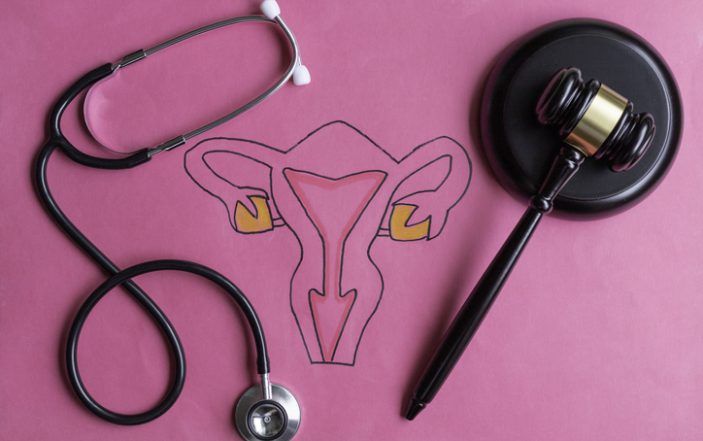Even as legislation makes it more challenging, physicians have to provide the best care for their patients.
What are the ethical obligations of a physician when laws are in conflict with patient care?
Regardless of one’s political opinion, we have reached a place where we must call upon medical ethicists to help lead the way in clarifying ethical physician behavior.
I just read an article from Associated Press that reported in part about Dr. Jessian Munoz, an OB-GYN in San Antonio, Texas, who treats high-risk pregnancies. Munoz said doctors are struggling to decide if a woman is “sick enough” to justify an abortion when they develop pregnancy complications.
In the wake of the recent Roe v. Wade decision, Munoz lamented “the art of medicine is lost and actually has been replaced by fear.”
Munoz faced a scenario with a recent patient who started to miscarry and developed a dangerous womb infection. Since the fetus still had signs of a heartbeat, Texas law made the typical standard of care — an immediate abortion — illegal.
“We physically watched her get sicker and sicker and sicker” until the fetal heartbeat stopped the next day, “and then we could intervene,” he said. The patient developed complications, required surgery, lost multiple liters of blood and had to be put on a breathing machine “all because we were essentially 24 hours behind.’’ (1)
Do Your Duty
How does the duty of the doctor differ from the obligation of law enforcement officers who stand outside a classroom when children are being executed?
As physicians we have always expected ourselves to perform to the highest ethical standards. There are many situations where conflicts exist.
We know that too much morphine can cause respiratory depression and death. Yet we understand that a dying hospice patient should not be in pain. We know that if we give adequate medication to manage their pain, they might succumb from respiratory depression.
And we understand that the intent was not death, but pain control and that it is ethically appropriate to treat the pain. I would also argue that it is morally incumbent upon us to treat pain.
Given a woman who is bleeding to death and septic, the life of that patient requires intervention that will result in fetal loss. The intent is to save her life.
Legal Interference
Legislators have demonstrated time and again that they do not know or understand medicine. Nor should we expect them to. They are not doctors, they are legislators.
Yet, for some time now, we have allowed them to dictate rules for physicians. How many of us now have to follow rules about pain medications for our patients?
But for doctors to lie down in a fetal position and cover their eyes and ears out of fear, when they know patients are dying in front of them (or worse, telling them to go home and die), cannot be considered moral practice or ethical behavior.
Doctors have a higher duty to take care of patients. It has often been said that the practice of medicine is a vocation. We don’t just sign a contract for a job. We take an oath and are committed to protect the health and life of our patients. There is always the potential of unintended consequences we have to accept.
Patient Care Still Priority
Now, more than ever, we need to ensure the privacy of our patients’ medical records and to deliver life-saving care. We need to define for our legislators what the overturn of Roe vs Wade means.
- Legal termination of pregnancy is no longer allowed. That is, elective termination dictated by a patient’s choice not to be pregnant.
- It does not have relevance to a patient with a spontaneous abortion. Nature has already aborted the fetus; the doctors just need to save the mother from those complications.
Doctors need to clarify to legislators the difference between these situations.
We need to practice medicine ethically.
We need our heroes to show up now. We need our leaders to put themselves on the line to lead the way.
(1)Abortion laws spark profound changes in other medical care | AP News




3 Comments
Unfortunately, we as physicians are almost too late to the political party.
This scenario raised its ugly head some time ago with the introduction of DRGs.
The medical reimbursement model which followed would not be tolerated in any other service, in which the government tells you the price they will pay. Try purchasing tires and tell the vendor what you will pay(yeah).
Decades later we have not moved in a meaningful direction to give legislative input as physician stakeholders in the practice of medicine.
We give BILLIONS to foreign lands over and over without any thought or debate while cutting reimbursements to the healers of our own citizens. Then we wonder why doctors are burning out.
As a Catholic medical ethicist, I’m not sure you would have to wait until the heart stops. From an ethical standard, the doctrine of double effect is in play here. The ethical standard is similar to an ectopic pregnancy, the purpose in delivering early in chorioamnionitis is not to kill the baby, but to remove the infected tissue. This is not an abortion, but a procedure that is necessary, but has as an unintended effect to end the life of the child, but save the mother. I’d be surprised as well if this could really lead to any legal ramifications.